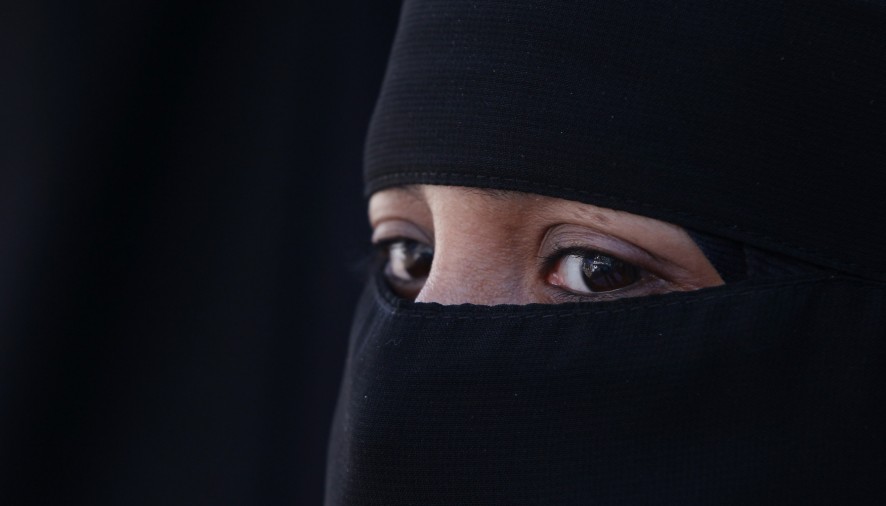When armed police make a woman remove clothing on a beach, something is obviously wrong. The shocking images of police enforcing a controversial ‘burkini ban’ in Nice last month should have been a wake-up call to the consequences of any policy that specifically penalises Muslim women. Instead, a YouGov poll shows that 57% of British people would support banning the burqa in the UK.
Perhaps the most depressing thing about the ongoing burqa ban debate is that the damage is already done. Whether or not the burqa will eventually be forced off British streets, it has already become politicised, a symbol of ideological clash. Every time the issue rears its head, the burqa’s status as an ideal rallying point for the far-right is reinforced: these people, they are able to claim, are not like us.
Watered down versions of this rhetoric are all around us, as the whole debate becomes increasingly tangled with fears about security, radicalisation, and failed integration. Each time the burqa crops up in relation to these anxieties, the us-and-them mentality surrounding it becomes further entrenched. And no one seems particularly concerned by the fact that the ‘them’ in this case are exclusively women.
It’s not hard to find the consequences of this attitude. Tell MAMA, an organisation that monitors anti-Muslim attacks, reported a more than threefold increase in incidents reported in 2015. According to the organisation’s website, women are more likely to be targeted – particularly those in Islamic dress. These statistics arise three years after a horrific incident in France, where a woman miscarried after a racially motivated attack, during which her assailants tried to remove her headscarf.
Even liberal voices are often quick to throw support behind a burqa ban, on the grounds of freeing Muslim women from oppression. Combined with the attacks from the far-right, this catches women who wear the burqa in an impossible double-bind: they are perceived as either submissive victims of an oppressive native culture, or determined to aggressively flaunt their rejection of a liberal host nation. Never mind that no culture is homogeneous, nor that these women all have varied and individual experiences; they make the ideal front for a whole mass of issues, and bear the brunt of Islamophobia as a result.
The incident in Nice should have been a timely reminder of what a debate on banning the burqa is really about. We’re not discussing whether the burqa is a good or a bad thing, but whether the state should determine what women can or cannot wear. Banning the burqa might seem like a quick fix for any number of complex problems, but it ignores the questions that should be at the centre of all legislation: who is this actually helping? And more importantly, who is it harming?
Yes, there are valid criticisms of the burqa, but a state-sponsored scapegoating of Muslim women won’t solve anything. A ban would only legitimise the grim amalgamation of misogyny and Islamophobia that they already face. Integration depends on tolerance and respect; Muslim women should be no exception.
Ella Gilani
Image: Huffington Post

